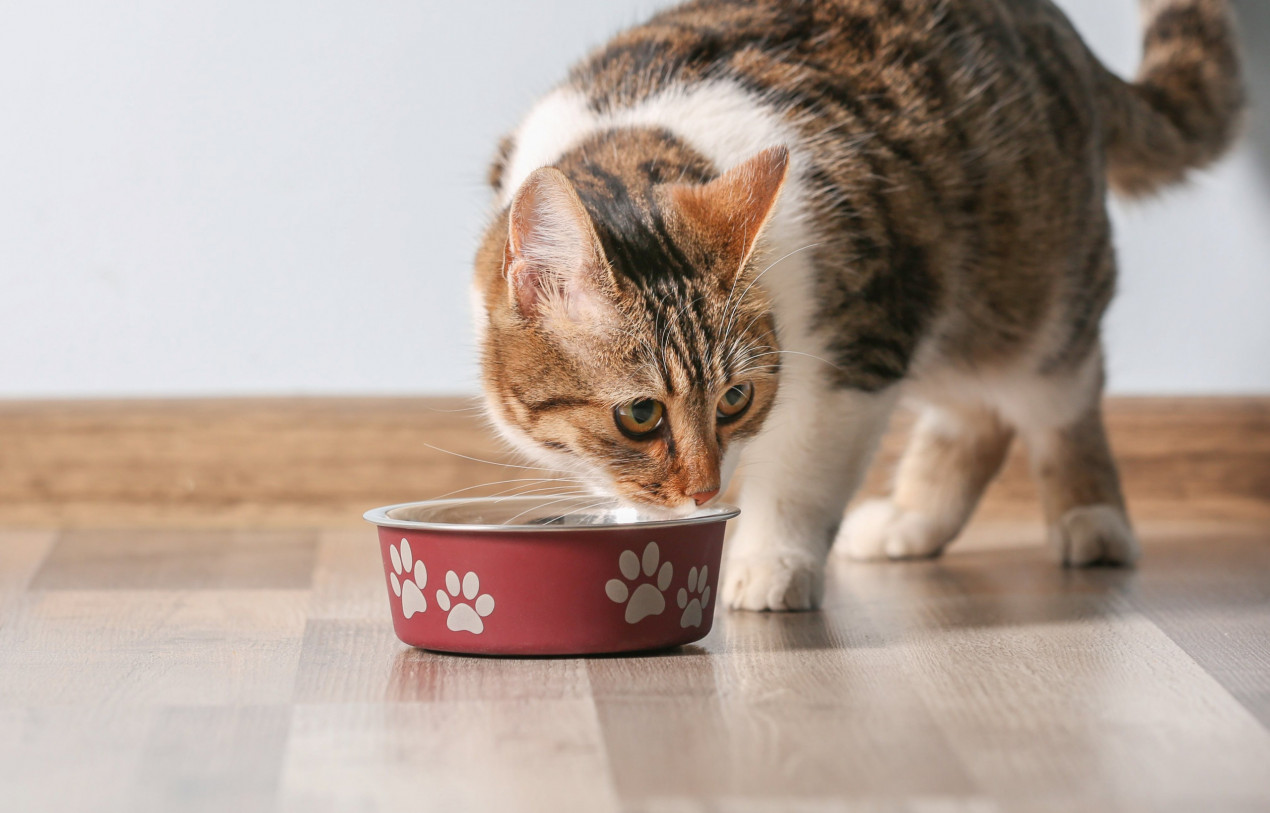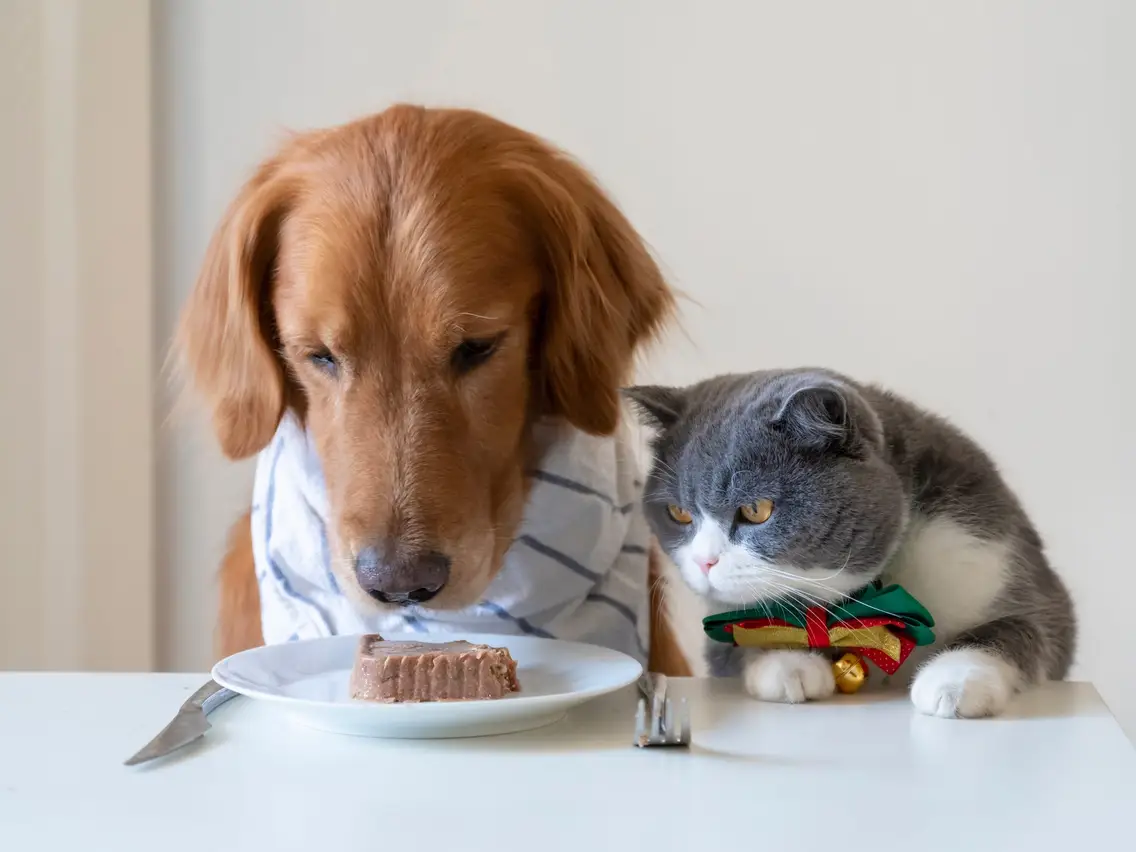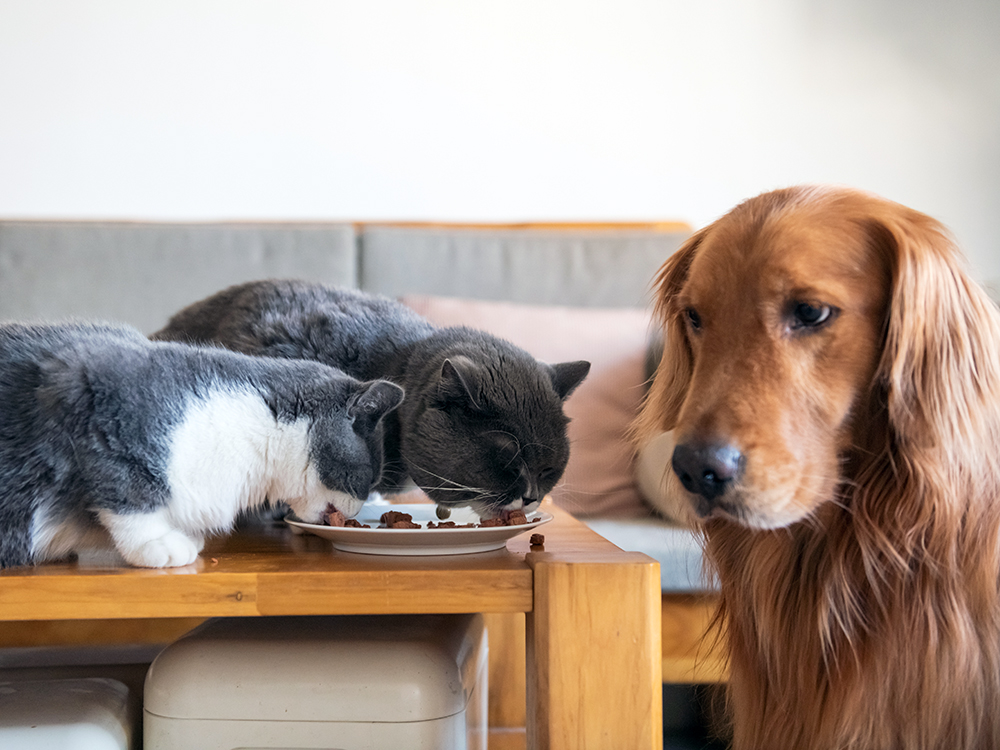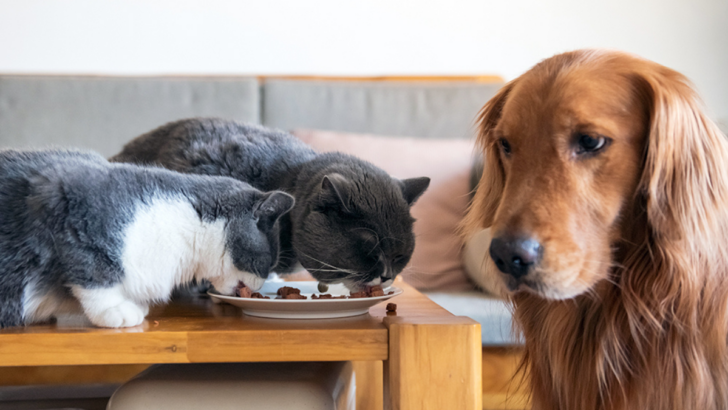When it comes to choosing the right food for your pets, it’s essential to ensure that they are getting the proper nutrition to support their health and well-being. For many pet owners, the decision on what to feed their animals can sometimes be a bit confusing. One common question that arises is whether it’s safe to feed dog food to a cat. While it may seem like an easy fix in a pinch, feeding dog food to cats is not a good long-term solution. Cats have very different dietary needs from dogs, and providing them with food that’s not formulated for them can lead to nutritional imbalances and health issues.
Cats are obligate carnivores, which means they require a diet that is high in animal protein and certain essential nutrients that are not found in significant amounts in dog food. Dog food, on the other hand, is formulated for omnivores, meaning it contains a broader mix of plant-based ingredients, including grains and vegetables, alongside animal protein. While dogs can tolerate a more varied diet, cats cannot. Feeding them food that’s not tailored to their specific needs could result in deficiencies over time.

One of the primary concerns is the lack of taurine in dog food. Taurine is an amino acid that cats cannot synthesize on their own, which makes it a critical component of their diet. If a cat doesn’t get enough taurine, it can lead to severe health problems, including heart disease, vision problems, and even death. Dog food typically contains much lower levels of taurine because it’s not a vital nutrient for dogs, but for cats, it’s a necessity. This is one of the most significant differences between the nutritional requirements of cats and dogs, and it’s why feeding dog food to a cat can be so dangerous.
Another concern is the balance of fats and proteins. While dog food contains adequate levels of protein for a dog, it doesn’t always meet the higher protein requirements of a cat. Cats need more protein to maintain muscle mass and to support their energy levels. Cats also have a faster metabolism than dogs, which means they require a higher caloric intake to support their active lifestyle. Additionally, the ratio of fat in dog food may not be suitable for a cat’s metabolism, potentially leading to malnutrition or other health complications. Cats also require fat to absorb fat-soluble vitamins, and a lack of these fats can impair their ability to metabolize key nutrients.
Furthermore, certain nutrients that are important for cats, such as arachidonic acid, vitamin A, and vitamin D, are often found in higher quantities in cat food but are either absent or present in insufficient amounts in dog food. Arachidonic acid, for example, is a type of fat that cats cannot produce on their own and must get from their diet. Without it, they could experience skin and coat problems, liver dysfunction, and reproductive issues.

Feeding dog food to a cat may not only result in nutritional deficiencies but can also lead to gastrointestinal issues. Cats have a different digestive system from dogs, and foods designed for dogs may not be as easily processed by their bodies. This can lead to vomiting, diarrhea, or other digestive disturbances that could cause discomfort and potential long-term harm.
While it’s true that an occasional meal of dog food may not immediately harm a cat, it is not advisable to make it a regular part of their diet. Cats require a specialized diet that supports their unique physiology, and feeding them food that isn’t tailored for them will only set the stage for health problems down the road. If a cat is consistently fed dog food, it may develop serious conditions, including malnutrition, organ damage, or even death. The longer a cat is fed the wrong food, the more severe the health consequences may become.
In situations where you may find yourself temporarily out of cat food and dog food is the only option available, it’s important to understand that this is not a substitute for proper nutrition. If you must feed dog food to your cat for a short period, try to ensure that the dog food is high-quality and doesn’t contain any harmful additives or preservatives.

If you find yourself regularly struggling to meet your cat’s dietary needs, consider looking into specialized food options or exploring other ways to ensure they receive the appropriate nutrition. There are plenty of high-quality cat food brands available that are designed to meet the nutritional requirements of your feline companion, and investing in the right food can prevent potential health problems in the future.
In conclusion, while dog food might seem like an easy or inexpensive alternative for feeding a cat, it is not a safe or sustainable choice. Cats have unique dietary needs that cannot be met by dog food. Consistently feeding your cat food designed for dogs can lead to nutritional imbalances and long-term health issues. Always ensure that your cat’s diet is specifically formulated to meet its needs, and consult with a veterinarian if you have any concerns about your pet’s nutrition. By feeding your cat the right food, you can help ensure that it lives a long, healthy, and happy life.
